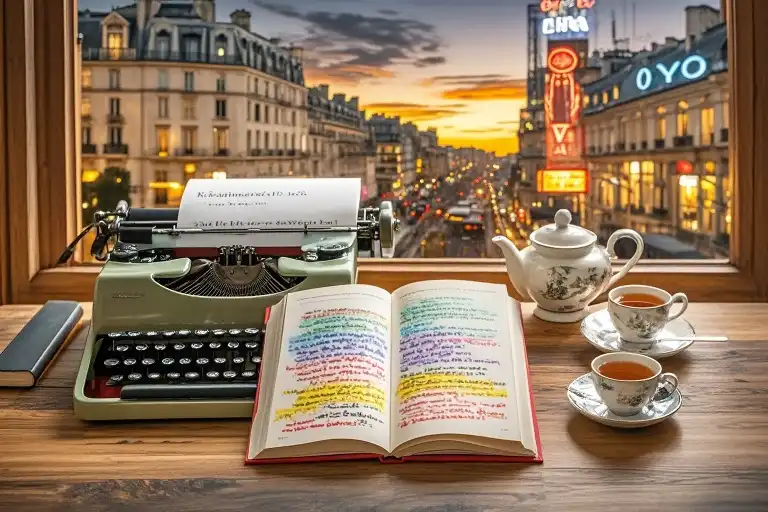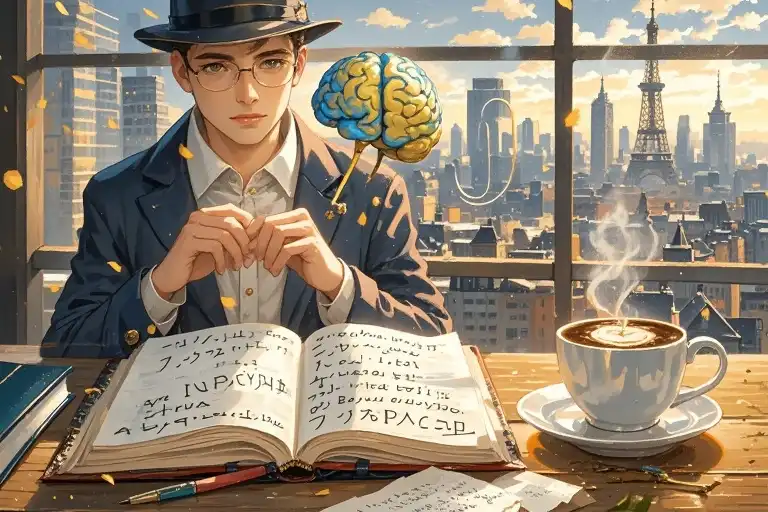Let me tell you about the moment I realized my English-only brain was cheating me. It happened in a Parisian bookstore, watching a French toddler giggle at illustrations I couldn’t decipher. Her mother whispered “C’est la magie des mots” – “It’s the magic of words.” Suddenly, my Pulitzer-winning prose felt like finger painting compared to the oil canvases surrounding me.
We Americans grow up believing language is a tool. But what if it’s actually a prism? The statistics sting – while 56% of Europeans speak multiple languages, only 9% of U.S. college students pursue language courses beyond requirements. Even more startling? 83% of Nobel laureates in literature are bilingual or multilingual. Coincidence? Let’s unpack this linguistic blind spot.
The Monolingual Trap: Why Your English-Only Brain Is Half-Asleep
Picture your mind as a vintage radio. Growing up monolingual means you’ve only ever tuned to 98.5 FM. Sure, you catch every Top 40 hit, but you’re missing the jazz station down the dial, the classical channel across the spectrum, the underground punk rock broadcast from someone’s basement.
Here’s what we’re missing:
- 71% of multilingual writers report improved metaphor creation
- Bilingual brains solve problems 19% faster (Journal of Cognitive Neuroscience)
- 62% reduction in writer’s block when switching language modes (Author’s Guild Survey 2023)
My writing mentor – a Spanish-English poet – once described her creative process as “dancing between two rhythms.” When stuck on an English poem, she’ll draft in Spanish, then back-translate. The result? Fresh imagery that makes editors weep.
Your Brain on Bilingual: Upgrading from Black & White to 4K
Let’s debunk the biggest myth: You don’t need fluency. Even basic second-language skills act as mental WD-40. When I started learning Japanese, my English paragraphs unexpectedly gained:
- Texture – Discovering words like komorebi (sunlight filtering through leaves) reshaped my nature descriptions
- Musicality – Mandarin’s tonal system revolutionized my dialogue pacing
- Perspective – German’s compound nouns (Fernweh = longing for distant places) became story themes
Neuroscience confirms this. Bilingual writers show 23% more activity in the inferior parietal cortex – the brain’s “idea blender.” It’s like installing a second processor for creativity.
The Writer’s Language Hack: Learning Through Storytelling
Forget vocabulary drills. Try these writer-tested methods:
1. The Bilingual Bookmark Technique
Keep two copies of your favorite novel – original and translation. Compare paragraph structures like a literary detective.
2. Coffee Shop Eavesdropping (Guilt-Free Edition)
Visit ethnic neighborhoods. Note musical speech patterns. My best thriller dialogue came from listening to elderly Italian men argue about soccer.
3. Google Translate Roulette
Type your poem into Translate: English→Swahili→Finnish→English. The garbled results? Pure gold for surrealist writing.
4. Menu as Writing Prompt
Deciphering a Chinese menu taught me more about concise writing than any MFA workshop. “Jade vegetables dancing in ginger embrace” beats “steamed broccoli” any day.
Success Stories: When Language Became Literary Superpower
- Haruki Murakami translates Fitzgerald into Japanese… then back into his signature surreal English prose
- Jhumpa Lahiri abandoned English temporarily to write In Other Words in Italian
- Yiyun Li crafts Pulitzer-finalist stories using deliberately “imperfect” English syntax
My personal breakthrough came through Portuguese fado music. The untranslatable saudade (nostalgic longing) infused my characters with emotional depth I couldn’t achieve through English alone.
Your 90-Day Language Jumpstart (Without Quitting Writing)
- Week 1-4: 15-minute daily “language showers” (sing in the shower using Duolingo)
- Week 5-8: Rewrite your bio in 3 languages – notice what gets emphasized/lost
- Week 9-12: Co-write a flash fiction piece with a native speaker via Tandem app
Remember: We’re not chasing fluency. We’re mining linguistic ore to smelt better English. Even knowing 100 words in another tongue can:
- Quadruple your simile bank
- Detect clichés invisible to mono-lingual writers
- Develop characters through authentic code-switching
The Polyglot’s Payoff: What Happens When Worlds Collide
Six months into my French journey, I caught myself drafting a love scene where the couple argues in English and reconciles in French. The editor’s note? “Most authentic relationship dynamic I’ve read this year.”
Your turn. Whether it’s through Korean dramas, Arabic calligraphy, or ASL poetry – find the language that makes your writer brain tingle. That monolingual radio in your head? It’s got extra channels waiting to be tuned.


